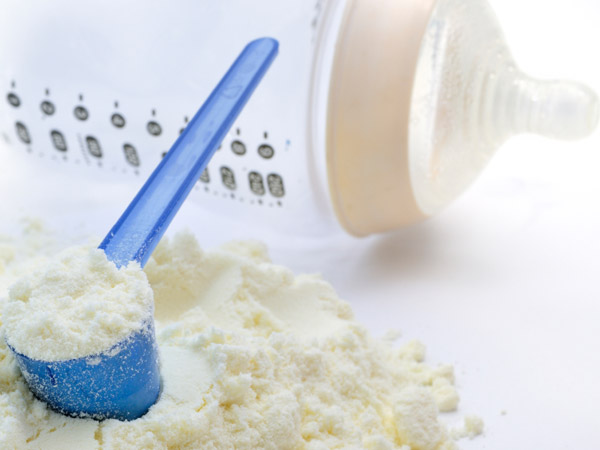
After breast milk, formula is a good choice for babies. Most formulas are derived from cow's milk and added with a variety of other ingredients, making it best suited for babies.
Breast milk or age- appropriate formula is recommended as the main source of food for all children under 12 months of age. Although the optimal choice is still breast milk, but if the mother is unable to breastfeed because of force majeure, it can be replaced with a suitable formula. Infant formula has been carefully researched to provide the same nutritional content as breast milk. It provides all the nutrients that babies need until they reach the weaning period at 6 months of age.
Getting started with formula
Most formula milk is based on cow's milk proteins and is suitable for babies up to 12 months of age. The two main proteins in milk are whey and casein. For breast milk, the whey: casein ratio in the first months is about 60:40 and after 8 months it is 50:50. High whey formulas are often used in babies under 4 months of age because they are easier to digest than high casein.
If you are buying formula for the first time, you may find it confusing when there are a lot of added milk on the label, such as: LCPUFAs (polyunsaturated fats or omega-3 fatty acids), pro-biotics. (probiotics) or pre-biotics (the dietary fiber that acts as the pro-biotic food). These ingredients are added because they are present in breast milk.
In addition to cow's milk, infant formula can also be made from soy or goat milk.
Soy formula
Don't confuse soy formula with regular soy milk. They have a very different nutritional profile. Soy-based infant formula is often used for babies with galactose intolerance.
>> See also: Children with nutritional disorder due to lactose intolerance
Follow on formula Milk follow on formula suitable for children from 6 months old and older. Whether you want to use them or not is up to you. This next-stage formula is also derived from cow, soy and goat's milk but has a higher protein and mineral content than early stage milk.
Tip: Be
cautious in changing milk If your baby is poorly fed, has gastrointestinal disturbances or colic, you must immediately think about the need to change the formula that your baby is drinking. Some evidence suggests that this exchange is very beneficial for the majority of babies. You should look to qualified people for advice before you want to change milk for your baby.












